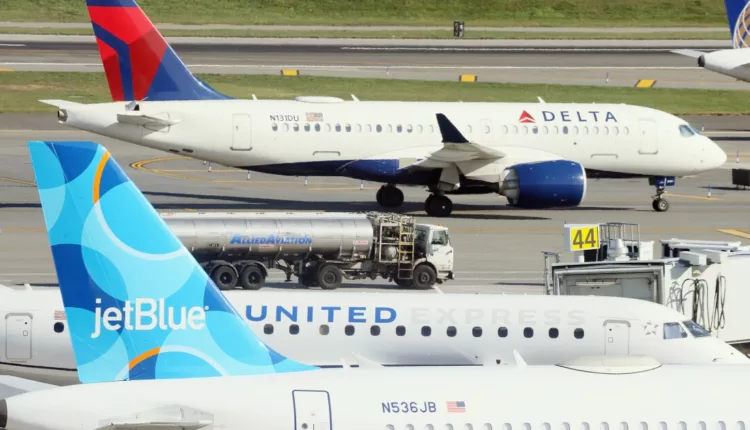
FAA Responds to Pilots’ Fear of Seeking Mental Health Care
TL/DR –
Commercial pilots and other aviation professionals are hesitating to seek help for mental health issues due to the fear of losing their medical clearance to fly. The National Transportation Safety Board (NTSB) is urging for reforms in rules and policies that discourage individuals from seeking treatment, and the Federal Aviation Administration (FAA) has announced a new advisory panel to evaluate such policies. Despite assurance from the FAA that pilots can fly again after a mental health diagnosis, there is a lack of trust from the pilots, often due to the lengthy certification process.
Commercial Pilot Voices Mental Health Concerns in the Aviation Industry
Commercial pilot, Troy Merritt, reflecting on his escalating anxiety and depression, hesitated to seek treatment fearing the potential consequences. He feared the loss of his medical certification, a prolonged absence from work, and the possibility of being grounded permanently. Merritt’s apprehensions underlined the hurdles faced by many aviation professionals in dealing with mental health issues.
Speaking at an aviation mental health summit in Washington, D.C, Merritt highlighted the pressing issue. The summit shed light on personal struggles within the aviation field, urging federal regulators to reform policies that discourage seeking help for mental health issues.
Convened by the National Transportation Safety Board (NTSB), the summit aimed to encourage aviation professionals to seek necessary treatment without fear of losing their medical clearance. Jennifer Homendy, NTSB Chairwoman, noted the culture of silence around mental health as the real safety risk.
The Federal Aviation Administration (FAA) has shown openness to policy changes around mental health. Recently, the FAA initiated a new advisory panel to investigate and break down barriers discouraging pilots and air traffic controllers from seeking mental health care.
Top FAA medical officer, Penny Giovanetti, acknowledged a mistrust between the administration and pilots. She assured that most pilots eventually regain their certification post mental health diagnosis, though admitted the lengthy process was discouraging.
The mental health issue in aviation was highlighted again in recent months when an off-duty pilot, Joseph Emerson, was charged for endangering an aircraft. Emerson’s family claimed he suffered from depression but avoided treatment fearing loss of his medical certification.
Such fears are common among pilots, leading many to avoid treatment. Dr. William Hoffman, clinical neurologist and aviation health care researcher, frequently receives requests for help from pilots, underlining the scale of the problem.
Merritt, despite his initial hesitations, sought treatment. He expressed no regrets and hopes to resume flying within six months to a year. While grounded, Merritt is supported by his union-provided disability insurance, an advantage many of his peers lack.
Merritt emphasised the untold stories of struggling pilots trapped within the existing system, spotlighting the urgent need for a comprehensive solution for mental health issues in aviation.
—
Read More Health & Wellness News ; US News
